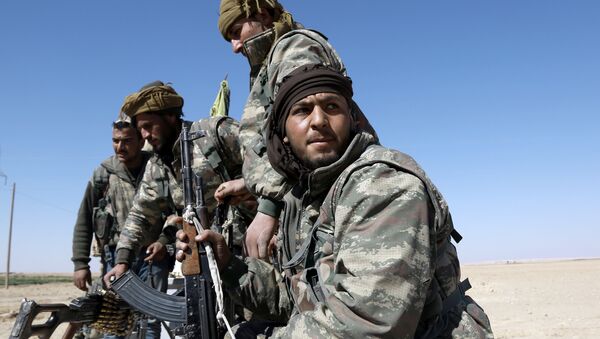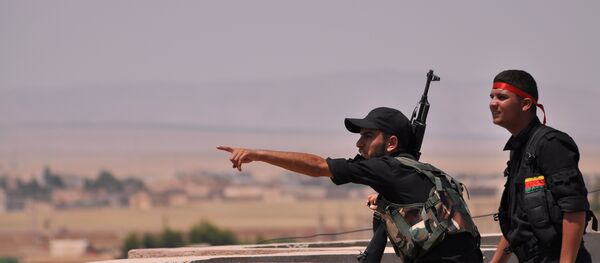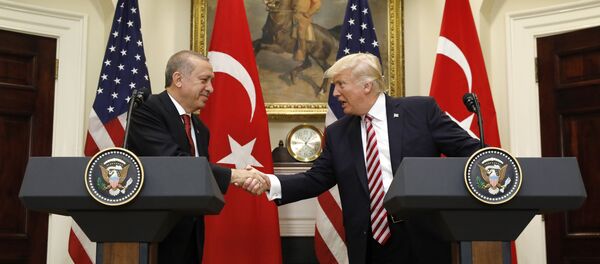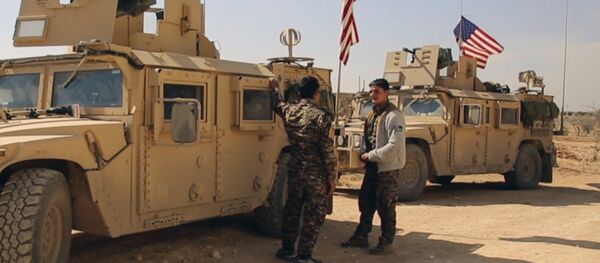According to media reports, Erdogan's White House visit consisted of a 23-minute one-on-one meeting with translators, a 20-minute press briefing in which the two presidents gave short speeches without taking questions and a 90-minute lunch attended by Erdogan's eight-person delegation and Trump's six-person team.
The Turkish leader left the meeting empty-handed, the media stated. Russia's online newspaper Lenta.ru took a look at why supporting the Kurds is more important to the US than backing its NATO ally.
Back in 2015, the newspaper said, the US gave Erdogan a chance: it offered bring in US jets to Turkish air bases and jointly train fighters from the Syrian opposition to fight against Daesh with the aerial support of both countries. The Americans wanted to form an alternative anti-Daesh force without the support of the Kurds.
He made a counteroffer: to setup a "no-fly" zone above the Syrian governorates of Aleppo and Idlib. The Turkish leader wanted a "safe heaven" for the so-called "moderate" opponents of President Assad, where they could re-group and take a rest without any risk of being attacked from the air.
The US did not buy into the offer as it would have been dragged into a full-fledged conflict with Damascus and in the longer term – with its allies Iran and Russia.
With Erdogan concentrating on his own game, the Pentagon was forced to turn to the strongest fighting force in the region – the Kurds.
However Washington and Ankara pursued different interests, the outlet notes. Erdogan did not want the territories along the Syrian-Turkish border to get under control of the Kurds, while the Americans simply wanted to kick out the terrorists.
Washington suggested using the Syrian Kurdish units. Erdogan was vehemently against this, assuring the US that he has thousands of capable Syrian fighters.
Ankara was even able to gather several hundred armed Salafi servicemen, opposition to Assad and Syrian Turkmen. However in spring of 2016 they were defeated by the re-grouped jihadists. And the US was once again forced to work with the Syrian Kurds, who by that time united with their Arab allies into the Syrian Democratic Forces (SDF).
In August, the SDF took Manbij, much to the fury of Erdogan, as Obama promised him that the Kurds would move to the east of Euphrates, closer to Kobanî. But the YPG units decided to stay.
Now, however, the liberation of Raqqa is on the agenda. Washington has made a decision to use the SDF and is arming the Kurds, much to the displeasure of Turkey, which wants to use its own units that participated in the Operation Euphrates Shield.
However according to Richard Weitz, Senior Fellow and Director of the Center for Political-Military Analysis at Hudson Institute, Turkey and the US will do their best to keep their relationship amicable.
"The US and Turkey have always had discrepancies in their relations, During the Cold War they could not agree on Cyprus and a number of other issues. However they preferred to jointly confront the Soviet threat," he told the newspaper.
"Despite all their disagreements on Syria, from the geopolitical point of view, the two countries should better stick together," he said.





